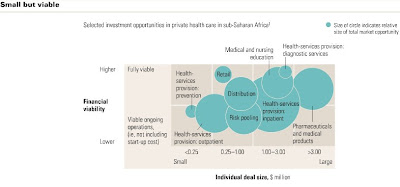 Africaworks reviews When Things Fell Apart: State Failure in Late-Century Africa by Robert H. Bates :
Africaworks reviews When Things Fell Apart: State Failure in Late-Century Africa by Robert H. Bates :
His new book aims to describe why African societies — and the governments that serve them — did so poorly even after recognizing the importance of markets. His book, while brief, is studded with great insights and, to my eyes, intended as a counterweight to reductionist arguments by others,notably the Oxford professor Paul Collier and Columbia’s Jeff Sachs, that the African state is essentially powerless in the face of wars over “greed and grievance” or geographic forces that isolate and undermine political actors. In a bid to undercut the ciricularity of these arguments, Bates tries to put politics — as a human activity — back in the center of the African condition.



















